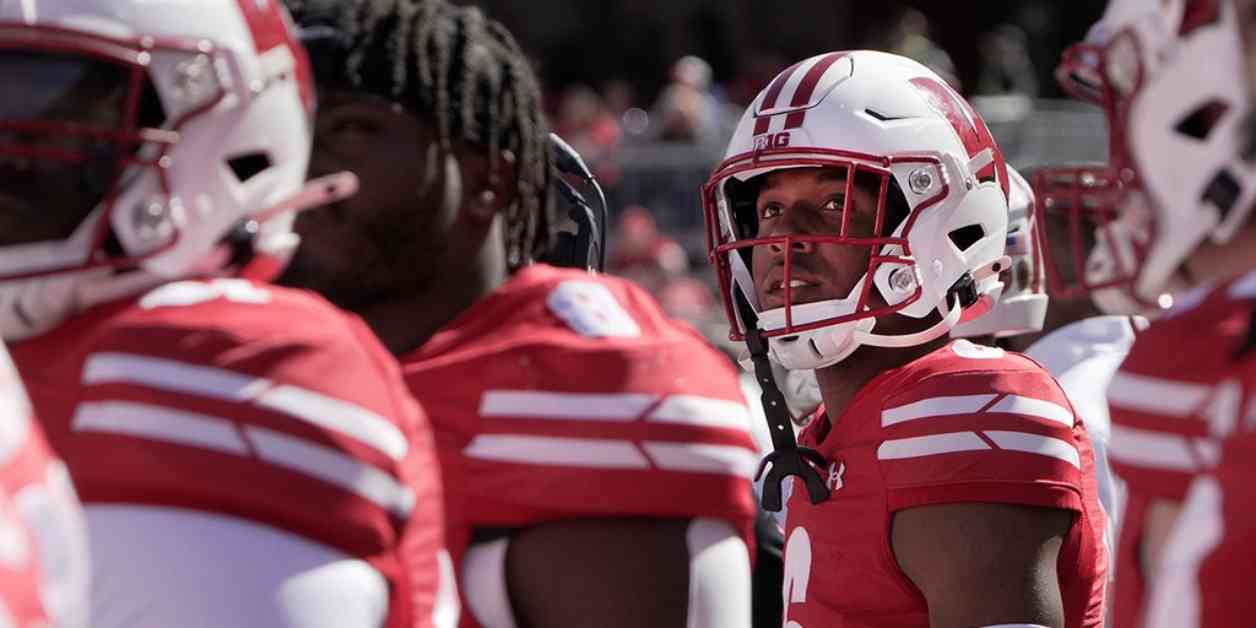Xavier Lucas Shakes Up College Athletics with Move to Miami Amid Revenue-Sharing Dispute
In a groundbreaking move that is sure to make waves in the world of college athletics, wide receiver Xavier Lucas has decided to leave the Wisconsin Badgers and enroll at the University of Miami. This decision comes after a month-long battle with Wisconsin over his desire to enter the transfer portal and find a school closer to home.
The whole saga began when Lucas expressed his intention to transfer out of Wisconsin, citing a desire to be closer to his family. However, complications arose due to a two-year agreement he had signed with the school regarding a revenue-sharing model that had yet to be approved by a judge, according to his attorney, Darren Heitner.
The agreement, in the form of a memorandum of understanding (MOU), gave the school rights to Lucas’s name, image, and likeness, in exchange for financial compensation. Despite submitting the necessary paperwork to enter the transfer portal on time, the school refused to do so, citing the unresolved revenue-sharing agreement.
### The Legal Standoff
Heitner, representing Lucas in this matter, emphasized that the MOU was contingent on the approval of the revenue-sharing settlement and Lucas’s enrollment in classes by Spring 2025. He further stated that the school’s refusal to allow Lucas to enter the transfer portal violated NCAA rules, as no payments had been made to the player.
Additionally, Heitner revealed that Lucas’s decision to transfer was influenced by his father’s health issues, prompting the player to seek a school closer to home. The situation highlighted the legal gray area created by the unresolved revenue-sharing agreement, setting a new precedent for future transfer portal disputes in college athletics.
### A Shift in Transfer Dynamics
Lucas’s unconventional decision to leave Wisconsin without entering the transfer portal could signal a significant shift in how players navigate transfers outside of the traditional window. While NCAA rules allow student-athletes to enroll at a new institution and compete immediately, regardless of portal entry, Lucas’s case challenges the existing norms.
Heitner’s assertion that Wisconsin’s potential lawsuit against Lucas for NIL rights at Miami would damage the school’s reputation underscores the high stakes involved in this dispute. As Lucas prepares to join the Miami Hurricanes, the aftermath of this transfer saga may lead to important changes in transfer regulations and player rights.
In conclusion, Xavier Lucas’s journey from Wisconsin to Miami is not just a personal decision but a catalyst for potential reforms in college athletics. As players, schools, and governing bodies navigate the evolving landscape of transfers and NIL rights, Lucas’s case serves as a poignant reminder of the complexities and uncertainties inherent in modern collegiate sports.

